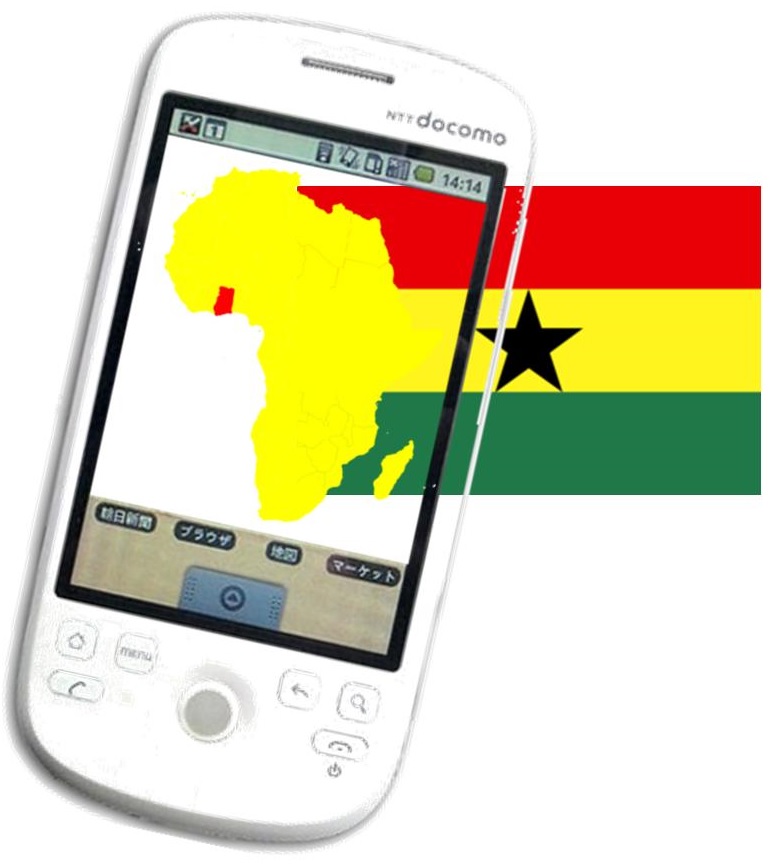Flous mobile commerce service to be used by UN agency in Togo, Africa
Etisalat, a leading telecommunications organization in the Middle East, Asia, and Africa, has announced that its mobile commerce service, called Flous, has been adopted by the United Nations’ Population Fund Agency. The agency will be using Flous to transfer salaries of more than 6,000 of its agents working in Togo. The mobile commerce platform has managed to acquire a significant amount of praise from those that have used it in many parts of the world and the platform is expected to meet the needs of the UN agency.
Service will allow agents to access their funds from a mobile device and pay for products and bills online
The Population Fund Agency in Togo is the first United Nations organization to adopt the service developed by Etisalat. The service will also those with an Etisalat account to access their funds through their mobile device. They will be able to use their smartphones and tablets to purchase products online with relative ease. Mobile shopping has become quite popular in Africa, especially as a growing number of people gain access to smartphones and similar devices.
Mobile shopping continues to grow due to its convenience
 Mobile shopping represents a certain degree of convenience for people living in many parts of the world. Those with limited personal time can benefit from mobile shopping, purchasing the products they need during long commutes. Mobile shopping can also exist as a way to get away from the crowds that are typically found at physical stores. These crowds can be a cause for anxiety among some people and mobile shopping could be an appropriate escape from such situations.
Mobile shopping represents a certain degree of convenience for people living in many parts of the world. Those with limited personal time can benefit from mobile shopping, purchasing the products they need during long commutes. Mobile shopping can also exist as a way to get away from the crowds that are typically found at physical stores. These crowds can be a cause for anxiety among some people and mobile shopping could be an appropriate escape from such situations.
Lack of mobile infrastructure may hinder the growth of mobile services
Some infrastructure challenges may prevent the Flous platform from finding initial success in Togo. Mobile commerce is still quite new and many countries have not yet taken the steps necessary to accommodate mobile consumers. As such, relatively few retailers, utilities, and other businesses in Togo accept mobile payments currently, but this may change as mobile commerce continues to grow in popularity.
Security could derail mobile payments in Ghana
Mobile payments have been gaining strong attention all over the world. As consumers become more heavily reliant on their smartphones and tablets, their interest in a cashless society grows. Such is the case in the African country of Ghana. More consumers in Ghana are gaining access to mobile technology and the government has been fostering a dream of a cashless economy that it has expected to see come to fruition in the near future. Mobile payments make a home in a perilous landscape, however, and the digital world contains threats that could derail Ghana’s dream economy.
Mobile security systems are still very lax
As mobile payments become more common in Ghana, so too does hacking and fraud. Internet fraud is quite active in Ghana; somewhat more so than in other African countries. Government officials have not yet found a way to curb this fraud or mitigate the damage that can be caused by hackers and these threats have stymied the growth of mobile commerce throughout the country. Major security issues may indeed prevent Ghana from attaining its dream of a cashless economy.
 Developing a cashless economy proves challenging
Developing a cashless economy proves challenging
In order to develop a new and comprehensive monetary system, Ghana will have to find a way to make mobile payments secure. This is no small task, as security remains a major problem even for countries like the U.S. and China when it comes to the issue of mobile payments. Even large companies like Google and Samsung have yet to find a way to make mobile payments completely secure. The threats that exist in the digital space have not yet become enough to deter consumers, however, many of whom are willing to participate in mobile commerce regardless of the risks they face.
Cash holds an important place with many businesses
Security issues are not the only challenge that Ghana faces in its hopes of establishing a cashless economy. There is currently a large volume of currency in circulation throughout the country, which makes the transition away from cash somewhat difficult. Moreover, physical currency plays a big role in many aspects of business in the country. Some small businesses will only accept payments that are made with cash and refuse to embrace mobile payments in any way whatsoever.
 Mobile shopping represents a certain degree of convenience for people living in many parts of the world. Those with limited personal time can benefit from mobile shopping, purchasing the products they need during long commutes. Mobile shopping can also exist as a way to get away from the crowds that are typically found at physical stores. These crowds can be a cause for anxiety among some people and mobile shopping could be an appropriate escape from such situations.
Mobile shopping represents a certain degree of convenience for people living in many parts of the world. Those with limited personal time can benefit from mobile shopping, purchasing the products they need during long commutes. Mobile shopping can also exist as a way to get away from the crowds that are typically found at physical stores. These crowds can be a cause for anxiety among some people and mobile shopping could be an appropriate escape from such situations.
 Developing a cashless economy proves challenging
Developing a cashless economy proves challenging